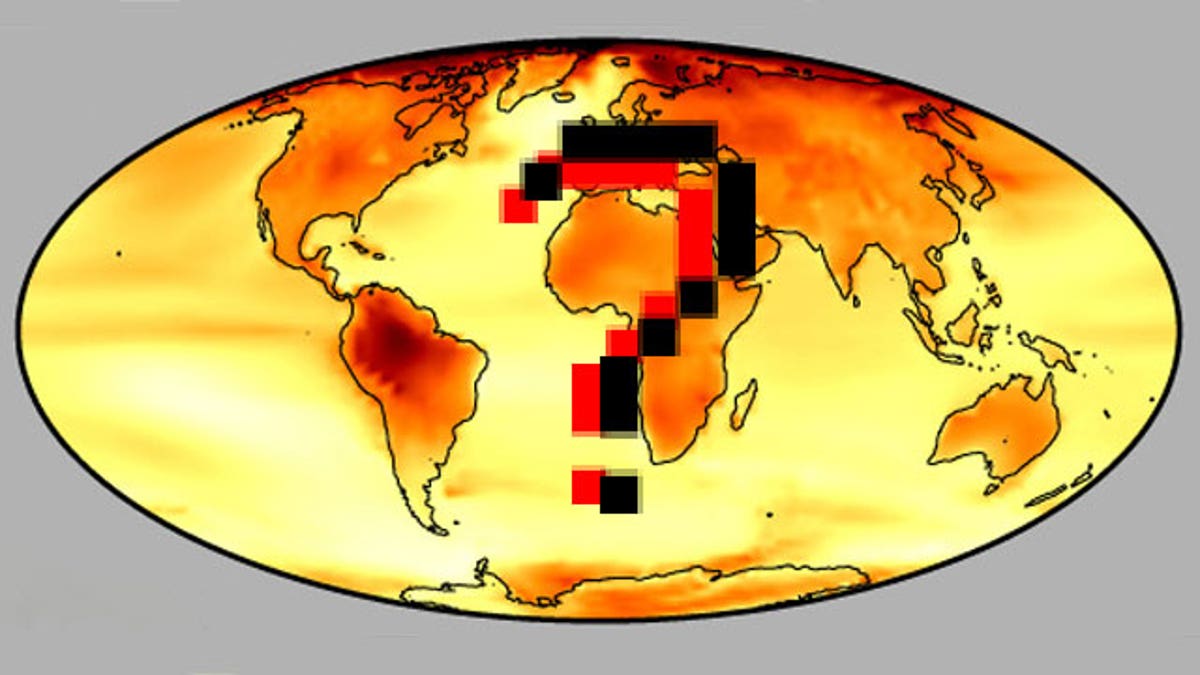
The predicted temperature changes (darker red indicating greater change) due to global warming, based on data that scientists, policymakers and the public are now questioning.
Are global warming skeptics anti-science? Or just ignorant about science?
Maybe neither. A study published Sunday in the journal Nature Climate Change finds that people who are not that worried about the effects of global warming tend to have a slightly higher level of scientific knowledge than those who are worried, as determined by their answers to questions like:
"Electrons are smaller than atoms -- true or false?”
"How long does it take the Earth to go around the Sun? One day, one month, or one year?"
“Lasers work by focusing sound waves -- true or false?”
The quiz, containing 22 questions about both science and statistics, was given to 1,540 representative Americans. Respondents who were relatively less worried about global warming got 57 percent of them right, on average, just barely outscoring those whose who saw global warming as a bigger threat. They got 56 percent of the questions correct.
[pullquote]
"As respondents’ science literacy scores increased, their concern with climate change decreased," the paper, which was funded by the National Science Foundation, notes.
Yale Law Professor Dan Kahan, the lead author of the study, cautioned that the survey results are not evidence for or against climate change.
"This study is agnostic on what people ought to believe," he told FoxNews.com. "It just doesn’t follow to say this finding implies anything about what people should believe on this issue."
Kahan said that he thought another finding of the study was more important: That people’s cultural views – how much they value things like individualism and equality -- affect their views on global warming much more than actual knowledge about science. Regardless of how much they know about science, individualists were relatively unconcerned about global warming, whereas those who value equality were very concerned.
Both sides of the global warming debate say the study's findings support their views. Those who worry about global warming say it shows that cultural biases blind even smart people to the “scientific consensus.”
"Kahan’s research is so interesting,” Aaron Huertas, a spokesman for the Union of Concerned Scientists, told FoxNews.com. “Over the last few years, the policy issues surrounding climate change have become increasingly politicized, and that’s bleeding over into people’s perceptions of climate science.”
"What we need to remember is that we have a number of excellent non-partisan scientific resources… [They] all tell us that human activity is altering the climate in ways that are disruptive to our economy and way of life."
But some of the 16 scientists who signed a letter this January titled "No Need to Panic About Global Warming" disagree.
Dr. Richard Lindzen, Professor of Atmospheric Sciences at MIT, was one skeptical scientist who signed the letter. He said that the finding that skeptics know as much or more about science surprised him "not at all."
"MIT alumni are among my most receptive audiences," he added.




















